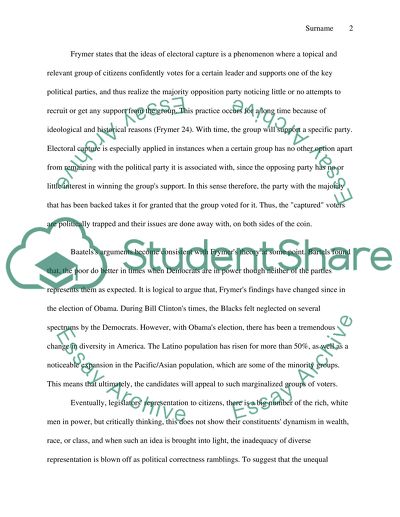Cite this document
(“Electoral capture Essay Example | Topics and Well Written Essays - 1250 words”, n.d.)
Retrieved from https://studentshare.org/politics/1469460-electoral-capture
Retrieved from https://studentshare.org/politics/1469460-electoral-capture
(Electoral Capture Essay Example | Topics and Well Written Essays - 1250 Words)
https://studentshare.org/politics/1469460-electoral-capture.
https://studentshare.org/politics/1469460-electoral-capture.
“Electoral Capture Essay Example | Topics and Well Written Essays - 1250 Words”, n.d. https://studentshare.org/politics/1469460-electoral-capture.


